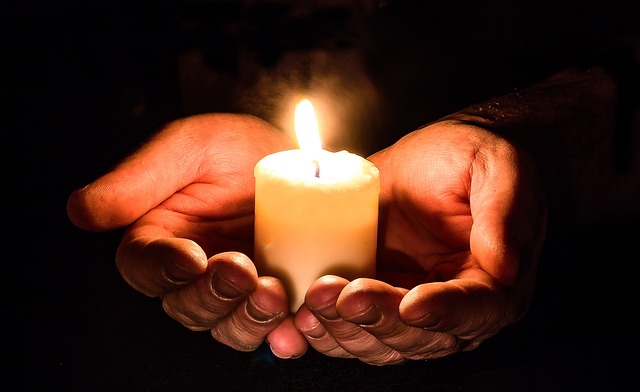Orthodox Churches are known for their rich history, beautiful architecture, and spiritual significance. Many people wonder if these churches are always open for visitors and worshippers. In this article, we will explore the accessibility of Orthodox Churches and whether they are open to the public at all times.
Table of Contents
The Significance of Open Doors in Orthodox Churches
Are Orthodox Churches Always Open?
If you’ve ever walked past an Orthodox church, you may have noticed that the doors are often wide open. This is not a coincidence or a mere architectural choice. In fact, the open doors of Orthodox churches hold great significance and play a vital role in the spiritual life of Orthodox Christians.
One of the primary reasons why Orthodox churches keep their doors open is to welcome all who enter. Unlike some other religious traditions that may have restricted access to their places of worship, Orthodox churches strive to be inclusive and inviting. The open doors symbolize the open arms of the church, ready to embrace anyone who seeks solace, guidance, or simply a quiet place for reflection.
The open doors also serve as a reminder of the open invitation extended by God to all people. In Orthodox theology, God’s love and grace are available to everyone, regardless of their background or circumstances. By keeping the doors open, Orthodox churches emphasize this universal invitation and encourage people to come and experience the presence of God firsthand.
Furthermore, the open doors of Orthodox churches reflect the belief that the church is not just a physical building but a spiritual home for all believers. Orthodox Christians see the church as a sacred space where they can connect with God and find spiritual nourishment. By leaving the doors open, the church invites people to step inside and partake in the rich traditions, prayers, and sacraments that are central to Orthodox worship.
In addition to their symbolic significance, the open doors of Orthodox churches also serve practical purposes. They allow natural light to flood the interior, creating a warm and inviting atmosphere. The open doors also facilitate the flow of fresh air, which is particularly important during long services or crowded gatherings. This emphasis on openness and comfort ensures that everyone who enters the church feels welcome and at ease.
However, it is important to note that while Orthodox churches generally keep their doors open, there may be times when they are closed. This could be due to specific services or events taking place, or simply for security reasons. Nevertheless, even when the doors are closed, Orthodox churches still strive to maintain an atmosphere of openness and accessibility.
In conclusion, the open doors of Orthodox churches hold deep significance and reflect the inclusive and welcoming nature of the Orthodox faith. They symbolize the open invitation extended by God to all people and serve as a reminder of the church’s role as a spiritual home for believers. While there may be times when the doors are closed, the overall emphasis on openness and accessibility remains. So, the next time you pass by an Orthodox church with its doors wide open, feel free to step inside and experience the warmth and beauty of this ancient tradition.
Understanding the Role of Orthodox Church Services

Are Orthodox Churches Always Open?
If you’ve ever driven past an Orthodox church and wondered if it’s always open, you’re not alone. The answer to this question is not as straightforward as you might think. While Orthodox churches are indeed places of worship, they are not always open to the public. Understanding the role of Orthodox church services can help shed some light on this matter.
Orthodox churches are known for their rich history and beautiful architecture. They serve as a gathering place for Orthodox Christians to come together and worship. However, unlike some other Christian denominations, Orthodox churches do not have regular hours of operation like a store or a museum. Instead, they are open for specific services and events.
The primary purpose of an Orthodox church is to hold divine services. These services are an integral part of the Orthodox Christian faith and are conducted by the clergy. They include prayers, hymns, scripture readings, and the celebration of the Eucharist. These services are not just a formality; they are seen as a way to connect with God and receive His grace.
Because of the sacred nature of these services, Orthodox churches are not always open for casual visits. The church doors may be locked outside of scheduled services to ensure the sanctity of the space. This is not meant to exclude anyone but rather to preserve the spiritual atmosphere within the church.
So, when are Orthodox churches open? The most common time for services is on Sundays, as this is the day of the week when Orthodox Christians gather to celebrate the resurrection of Jesus Christ. Sunday morning Divine Liturgy is the main service of the week, and it is typically followed by a fellowship meal called agape. This is a time for the community to come together and share a meal, strengthening their bonds of faith and friendship.
In addition to Sunday services, Orthodox churches also hold services on major feast days and during the liturgical seasons of the year. These include Christmas, Easter, and other significant events in the life of Christ and the saints. These services are often accompanied by special traditions and rituals that add to the beauty and solemnity of the occasion.
While Orthodox churches may not always be open for casual visits, they do welcome visitors during scheduled services. If you are interested in attending a service, it is best to check the church’s website or contact the clergy for information on the schedule. They will be happy to guide you and answer any questions you may have.
In conclusion, Orthodox churches are not always open to the public, but they are open for specific services and events. These services are an essential part of the Orthodox Christian faith and are conducted by the clergy. While the doors may be locked outside of scheduled services, visitors are welcome to attend and experience the beauty and spirituality of Orthodox worship. So, if you’re curious about Orthodox churches, don’t hesitate to reach out and explore the rich traditions and practices of this ancient Christian faith.
Exploring the Tradition of Continuous Worship in Orthodox Churches
Are Orthodox Churches Always Open?
If you’ve ever driven past an Orthodox church late at night and noticed the lights on, you might have wondered if these churches are always open. The answer is yes, Orthodox churches are known for their tradition of continuous worship. This tradition dates back centuries and is an integral part of the Orthodox faith.
One of the key aspects of Orthodox worship is the belief in the real presence of Christ in the Eucharist. Orthodox Christians believe that the bread and wine used in the Eucharist become the actual body and blood of Christ. This belief is central to their faith and is why continuous worship is so important.
In Orthodox churches, the Eucharist is celebrated during the Divine Liturgy, which is the main worship service. The Divine Liturgy is typically held on Sunday mornings, but it can also be celebrated on other days of the week. Orthodox Christians believe that participating in the Eucharist is a way to commune with God and receive His grace.
Because of the significance of the Eucharist, Orthodox churches are always open for worship. This means that you can walk into an Orthodox church at any time and find people praying, lighting candles, or participating in other forms of worship. The doors are open to anyone who wants to come and seek God’s presence.
The tradition of continuous worship in Orthodox churches is not just limited to the Eucharist. Orthodox Christians also have a practice called “vigil,” which involves staying awake and praying throughout the night. Vigils are often held on Saturday evenings in preparation for the Sunday morning Divine Liturgy.
During a vigil, the church is filled with the sound of prayers, hymns, and incense. It is a time of deep spiritual reflection and connection with God. Orthodox Christians believe that by participating in a vigil, they are joining the angels and saints in worshiping God without ceasing.
The practice of continuous worship in Orthodox churches is not just a religious obligation, but also a way of life. Orthodox Christians strive to maintain a constant connection with God through prayer and worship. This is why you will often find Orthodox churches open even during the late hours of the night.
In addition to continuous worship, Orthodox churches also serve as places of refuge and solace. They are open to anyone who seeks comfort, guidance, or a moment of peace. Whether you are a member of the Orthodox faith or not, you are always welcome to enter an Orthodox church and find a quiet space for reflection and prayer.
So, the next time you drive past an Orthodox church and see the lights on, remember that it is not just a coincidence. Orthodox churches are always open, welcoming anyone who wants to experience the presence of God. Whether it’s during the Divine Liturgy, a vigil, or a quiet moment of prayer, Orthodox churches offer a sanctuary for spiritual seekers.
The Impact of Openness on Community Engagement in Orthodox Churches
Are Orthodox Churches Always Open?
When it comes to community engagement, the openness of Orthodox churches plays a significant role. The question of whether these churches are always open is an important one to consider. After all, an open church can foster a sense of belonging and encourage community members to actively participate in various activities and events.
Orthodox churches are known for their rich traditions and deep-rooted spirituality. They are places where people come together to worship, seek solace, and find guidance. However, the level of openness can vary from one church to another. Some churches may have limited hours of operation, while others may be open throughout the day.
The impact of openness on community engagement cannot be overstated. When a church is open, it becomes a welcoming space for individuals to gather, connect, and build relationships. It allows community members to come in and explore the church’s teachings, traditions, and values. This openness can be a catalyst for increased involvement and participation in church activities.
An open church also provides a safe haven for those seeking spiritual guidance or simply a quiet place for reflection. It allows individuals to find solace and comfort in times of need. Moreover, an open church can serve as a hub for various community events and initiatives. From charity drives to cultural celebrations, an open church can become a central gathering place for the community.
However, it is important to note that not all Orthodox churches are open at all times. Some churches may have limited hours due to various reasons, such as staffing constraints or security concerns. While this may limit the accessibility of the church, it does not necessarily mean that community engagement is hindered.
In fact, even when a church has limited hours, it can still actively engage with the community through outreach programs and events. These initiatives can take place outside the church premises, allowing community members to connect with the church and its values. By reaching out to the community, the church can bridge the gap created by limited hours and ensure that community engagement remains strong.
Moreover, technology has played a significant role in enhancing community engagement in Orthodox churches. Many churches now have online platforms where individuals can access sermons, teachings, and other resources. This digital presence allows the church to connect with a wider audience and engage with community members who may not be able to physically visit the church.
In conclusion, the openness of Orthodox churches has a profound impact on community engagement. While not all churches are open at all times, the level of openness does not necessarily hinder community involvement. An open church fosters a sense of belonging, provides a safe space for reflection, and serves as a hub for community events. Even when physical accessibility is limited, churches can actively engage with the community through outreach programs and online platforms. Ultimately, it is the spirit of openness and inclusivity that drives community engagement in Orthodox churches.
Conclusion
In conclusion, Orthodox churches are not always open. The opening hours of Orthodox churches may vary depending on the specific church and its location. It is advisable to check the schedule or contact the church authorities beforehand to ensure that the church is open for visitation or worship.



